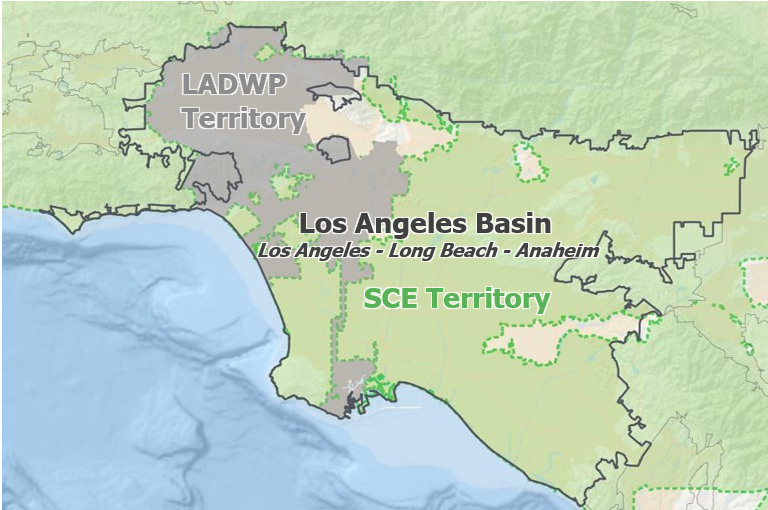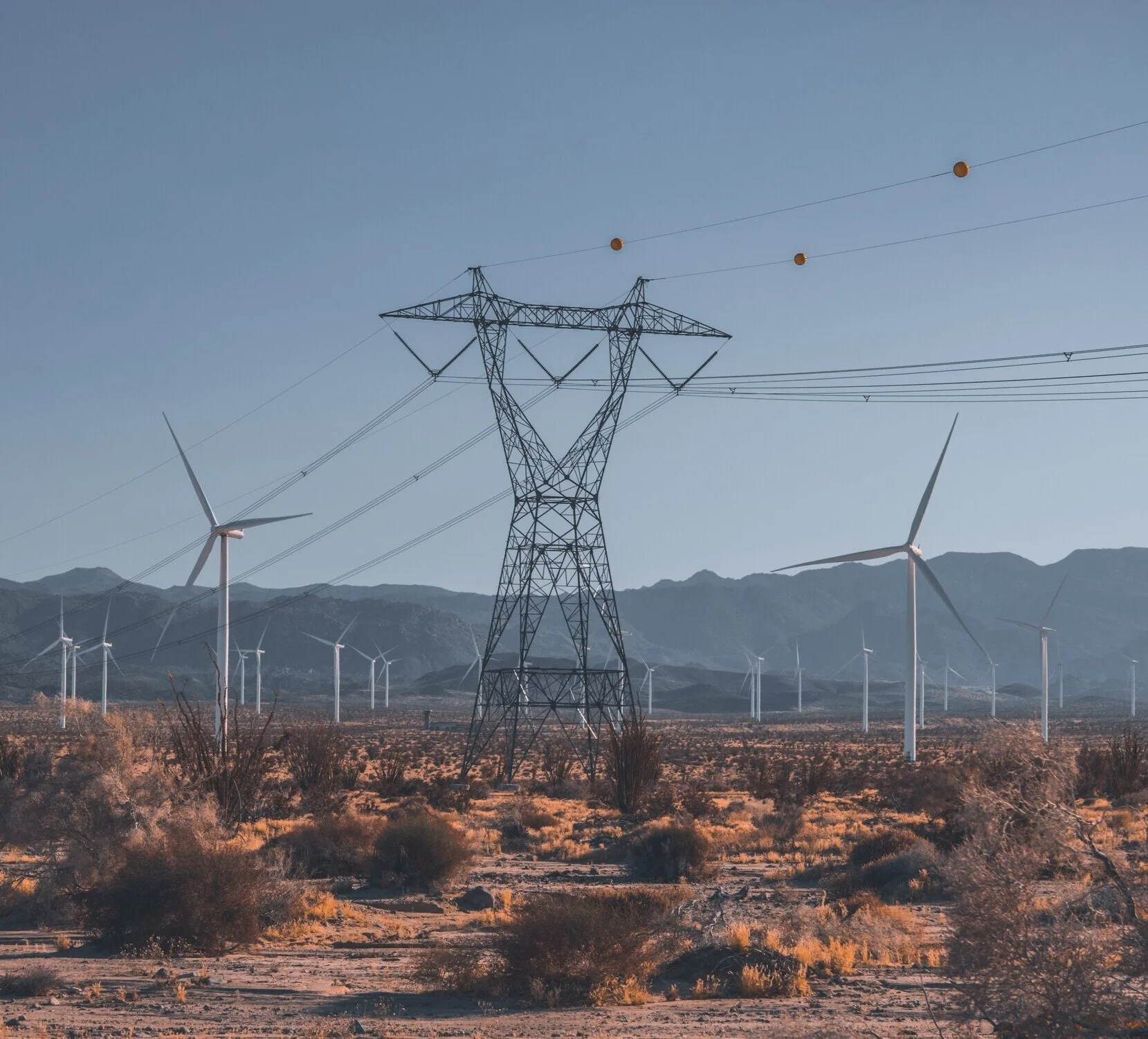Help us uncover the need for energy storage in the LA Basin
This detailed modeling study will empower the CPUC to identify optimal energy storage procurements in the LA Basin to support clean air and local reliability
The LA Basin is a transmission-constrained region with historic dependency on fossil fuel capacity resources, many of them affecting disadvantaged or marginalized communities. While NREL's Los Angeles 100% Renewable Energy Study (LA100) provides clarity on reliable decarbonization pathways for the City of LA and LADWP territory, the CPUC seeks credible studies like this to unlock system and local solutions for upcoming IRPs in the remainder of this unique region (shown in the graphic).
This study will demonstrate how energy storage can replace fossil fuel peakers for an affordable, reliable, and decarbonized LA Basin.
The study will evaluate all non-LADWP territory in the LA Basin
- Add in fossil fuel peakers?
The study will set the stage for significant storage opportunities for CESA partners in the LA Basin by…
Establishing a clear vision for the role of storage in providing affordable, resilient, reliable, and clean local energy supply.
Creating a compelling coalition of key LA and IRP stakeholders to advance these solutions both at the CPUC and in procurement activities.
Publishing this report in 2022 (expected) to position the topic as a primary area of focus for the CPUC as they close out emergency procurement planning associated with summer readiness and Diablo Canyon retirement and begin to think about more strategic and pro-active grid transition.
Join early to fund and shape the study
The work to enable replacement of fossil fuel resources with targeted energy storage deployments starts now. Join to ensure your voice is heard in the early phases of this study, launching by the end of Q2.
PHASE 1: Build alignment for input assumptions and modeling scope
PHASE 2: Modeling and interpretation of modeling results
PHASE 3: Develop a compelling public report focusing on key policy recommendations
For more information on the study and opportunities to get involved, contact Sergio Duenas at CESA today!



